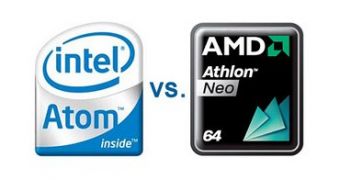“I was really worried about the x86 cross-license dispute when I heard about it. That could have been disastrous. I understand where this sense of relief is coming from, I'm relieved too,” Kevin Jacoby, chief executive officer of Rain Recording, a Ringwood, N.J.-based maker of high-performance audio workstations that partners with both Intel and AMD, says.
The relief Jacoby speaks of is linked to the fact that, if AMD and Intel hadn't finally settled their antitrust issues, there would have been a high risk for low x86 chip supplies, which would have jeopardized the business stability of all business partners of the two rivals. Now, Advanced Micro Devices will be able to make its own x86 CPUs without worries and without the need for the facilities making them to have the AMD subsidiary status.
This means that when the recently acquired Chartered Semiconductor Manufacturing is absorbed into Globalfoundries, currently a joint venture between AMD and Advanced Technology Investment Company, AMD will become a minor shareholder. Thanks to this, the contract maker of chips will be able to manufacture x86 processors.
“The settlement is a win-win for both [Intel and AMD], although it may not have much effect on Intel's continuing governmental antitrust investigations around the world,” Jack Gold, principal analyst for J. Gold Associates, writes in an early analysis of the settlement, CRN reports.
Officially, partners claim that AMD will be able to improve its position in the competition and supply enough processors to its partners. This, however, doesn't seem to fit with the current situation, namely the decreasing market share of AMD, which clearly indicates the drop in demand for Advanced Micro Devices CPU units.
As opposed to this, Intel seems to have gained a bigger prize out of the affair. While AMD simply got rid of a restriction, Intel gained a whole-new array of resources, namely patents of ATI. This means that the Santa-Clara enterprise now has the means to evolve the one part of its technology that couldn't be developed very well before, namely the GPU technology and high-performance integrated graphics circuitry. This means that the only consolation prize left for Advanced Micro Devices is the fact that Intel still has a fair amount of antitrust lawsuits to sort out.

 14 DAY TRIAL //
14 DAY TRIAL //